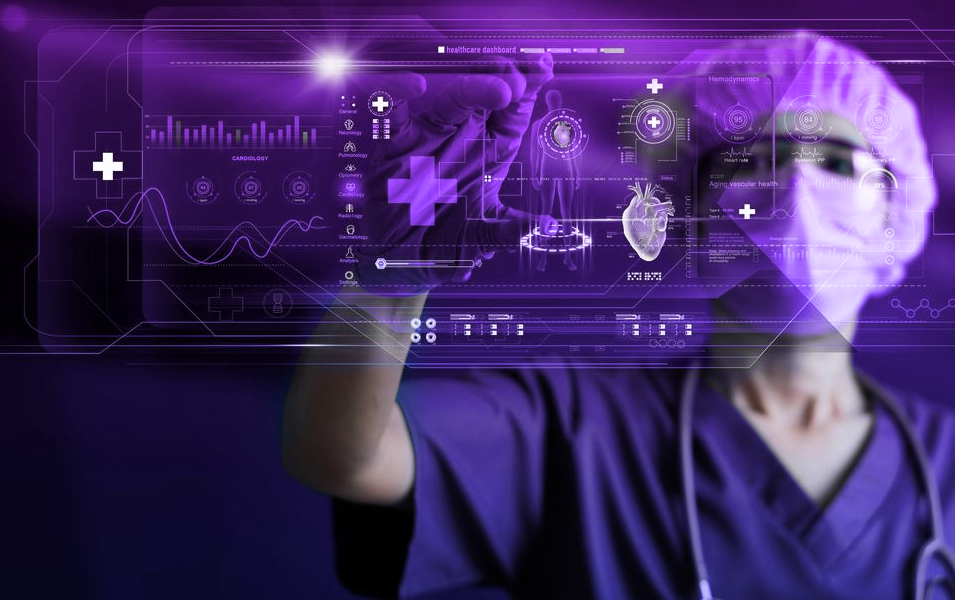Future Technology: Innovations Shaping the Next Decade
As technology advances at a rapid pace, the coming years promise innovations that could dramatically transform industries and daily life. Here are some of the key future technologies likely to define the next decade.
1. Artificial General Intelligence (AGI)
- Beyond Narrow AI: AGI refers to machines that can perform any intellectual task a human can. While current AI is specialized, AGI would be able to reason, learn, and solve problems across diverse fields, moving closer to true human-like cognition.
- Applications: Personalized AI companions, advanced medical diagnostics, and general-purpose robots capable of complex tasks.
- Ethical and Safety Concerns: AGI’s power raises questions about control, bias, and societal impacts, sparking significant ethical and safety debates.
2. Quantum Internet and Quantum Communication
- What It Is: A quantum internet would use quantum entanglement to enable instantaneous, ultra-secure data transfer, potentially making eavesdropping impossible.
- Impact on Security: Quantum communication could revolutionize cybersecurity, creating networks that are inherently immune to hacking.
- Applications: Secure communication for government, military, and financial sectors; advanced distributed computing; and encrypted global communications.
3. Fusion Energy
- Clean, Limitless Energy: Fusion replicates the process powering the sun, promising virtually limitless, clean energy without the nuclear waste of fission reactors.
- Recent Breakthroughs: Innovations in magnetic containment and laser ignition have made fusion energy appear more achievable.
- Potential Impact: A fusion-powered future would reduce dependency on fossil fuels, significantly impacting climate change and energy availability.
4. Brain-Computer Interfaces (BCIs)
- Direct Brain Interaction: BCIs connect the human brain to computers, allowing people to control devices or communicate using their thoughts.
- Current Progress: Companies like Neuralink and research institutions are making strides, with early applications in treating neurological conditions like paralysis.
- Applications: BCIs have potential in medical fields, prosthetics, gaming, education, and even enhanced cognitive abilities.
5. Nanotechnology and Advanced Materials
- Smart Materials: Nanotech enables the development of materials with customized properties, such as strength, flexibility, and conductivity.
- Applications: Nano-materials could revolutionize fields such as medicine (drug delivery), manufacturing (stronger, lighter materials), and environmental tech (water purification, carbon capture).
- Graphene and Beyond: Graphene, a single layer of carbon atoms, is 200 times stronger than steel and highly conductive, with applications in electronics, batteries, and more.
6. Autonomous Ecosystems and Robotics
- Fully Autonomous Transportation: The future could see entire cities supported by fleets of autonomous vehicles, drones, and delivery systems.
- Robot Swarms: Small, collaborative robots could be used in agriculture, disaster response, and manufacturing.
- Applications: Precision farming, efficient city logistics, remote inspections, healthcare assistance, and hazardous area operations.
7. Extended Reality (XR): AR, VR, and Mixed Reality
- Immersive Environments: XR will evolve beyond entertainment to education, remote work, mental health, and social engagement.
- Metaverse Growth: An interconnected digital universe where people can socialize, work, and play in virtual and augmented environments.
- Applications: Virtual meetings, training simulations, therapeutic settings, retail experiences, and social interactions.
8. Bioprinting and Regenerative Medicine
- 3D-Printed Organs and Tissues: Bioprinting technology may eventually enable the printing of organs, tissues, and complex biological structures on demand.
- Stem Cell Technology: Advances in stem cell research will complement bioprinting, potentially allowing regenerative treatments for damaged tissues and organs.
- Applications: Personalized medicine, drug testing, prosthetics, and organ transplants with minimal rejection risks.
9. Space Exploration and Colonization
- Mars Colonization: Companies like SpaceX are working toward manned missions to Mars, with the vision of establishing a sustainable human colony.
- Lunar Bases: NASA, ESA, and other space agencies aim to build lunar bases to support long-term missions and resource extraction.
- Asteroid Mining: Future missions could extract valuable metals and resources from asteroids, potentially transforming the economy and resource availability.
10. Synthetic Biology and Genetic Engineering
- CRISPR and Gene Editing: CRISPR and other gene-editing technologies are paving the way for precise genetic modifications to treat diseases and enhance agricultural yields.
- Designer Organisms: Synthetic biology allows for the creation of customized microorganisms that can produce biofuels, clean up oil spills, or even manufacture pharmaceuticals.
- Applications: Genetic disease prevention, improved crop resilience, biomanufacturing, and sustainable production of materials and foods.
11. Smart Cities and Digital Twins
- What They Are: Smart cities use data and connected infrastructure to improve urban life, while digital twins are virtual replicas of physical environments used for real-time analysis.
- Applications: Traffic management, energy efficiency, public safety, and sustainability initiatives.
- Environmental Benefits: Real-time data can optimize resource use, reducing pollution and waste, making urban environments more sustainable.
12. Neuromorphic Computing
- Brain-Inspired Processing: Neuromorphic computing replicates neural architectures in hardware, enabling computers to process information similarly to the human brain.
- Energy Efficiency: These systems consume significantly less energy than traditional computers, making them suitable for AI applications.
- Applications: AI-powered devices, robotics, and autonomous systems requiring high energy efficiency and rapid decision-making.
Conclusion
Future technologies will dramatically transform industries, society, and even the concept of human potential. While each technology has its challenges, the possibilities for breakthroughs in energy, healthcare, computing, and sustainability make the future look exciting and full of potential. Many of these innovations will likely become foundational, reshaping life and work in ways that we can only begin to imagine today.






